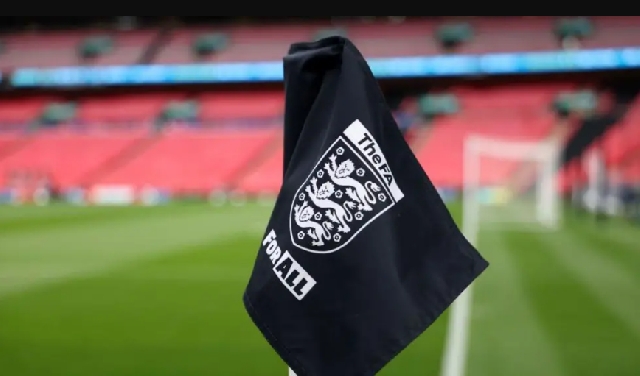UK: FA bars transgender women from women's football
 Getty Images (Pic): The Football Association is English football's governing body
Getty Images (Pic): The Football Association is English football's governing body
Transgender women will no longer be able to play in women's football in England from 1 June, the Football Association has announced.
It amended its rules on 11 April, applying stricter eligibility criteria for transgender women to continue playing in women's football at all levels.
However, following the UK Supreme Court's ruling on 15 April that the legal definition of a woman is based on biological sex, the FA has scrapped that policy and says only those born biologically female will be permitted to play.
"This is a complex subject, and our position has always been that if there was a material change in law, science, or the operation of the policy in grassroots football then we would review it and change it if necessary," the FA said.
"We understand that this will be difficult for people who simply want to play the game they love in the gender by which they identify, and we are contacting the registered transgender women currently playing to explain the changes and how they can continue to stay involved in the game."
Sources have told BBC Sport that the Scottish FA is set to follow the English FA's ruling by banning transgender women from women's football in Scotland.
What was the FA's previous policy?
Under amended rules announced on 11 April, the FA said transgender women could continue to participate in women's football provided they met certain criteria.
They would have to prove via medical records that their testosterone levels had been below prescribed levels for at least the past 12 months, and provide a record of hormone therapy and an annual review of treatment.
A new formal process, which would involve a "match observation" by an FA official, would give the FA "ultimate discretion" on a case-by-case basis.
What has the reaction been?
Fiona McAnena, director of campaigns for human rights charity Sex Matters, said the ruling was "overdue" and that the previous policy was "nonsensical".
Following the Supreme Court ruling, Natalie Washington, the campaign lead for Football vs Transphobia, told BBC Sport that there would be an increase in the abuse directed at transgender people.
"What I'm sure we'll see is greater reticence from transgender people to engage with sport and physical activity," she said.
"Whenever there is a legal or governmental ruling on this, or an organisation takes a position, there is an uptick in abuse."
How many players will be barred?
Last month the FA said there were 20 transgender women registered among the millions of amateur players.
There are no registered transgender women in the professional game across the Home Nations.
Last week anti-discrimination group Kick it Out said the Supreme Court ruling would have "far-reaching consequences" and called for "everyone in football community to treat one another with respect and compassion".
Source: bbc.com
Trending News

Eastern Regional police investigate shooting incident at Asiyaw near Nsawam
02:17
Alhaji Seidu Agongo donates GHS500,000 to 'Mahama Cares' initiative
10:44
Stop annointing chip-embedded passports -Minister to pastors
15:01
Roads Minister urges cooperation on compensation as Kasoa–Cape Coast highway nears completion
02:11
Ken Agyapong withdraws from ''Bawumia's Thank You Tour” after supporter stabbing incident
01:49
International Kingdom University raises alarm over rising youth drug abuse
16:47
President Mahama to unveil code of conduct for appointees today
12:46
Kasoa: NDC member urges President Mahama to make lawlessness a national priority
04:19
GBA labels suspension of Chief Justice unconstitutional, threatens legal action
01:13
Develop a comprehensive strategy to combat illegal mining- Presby Moderator to gov't
14:28




